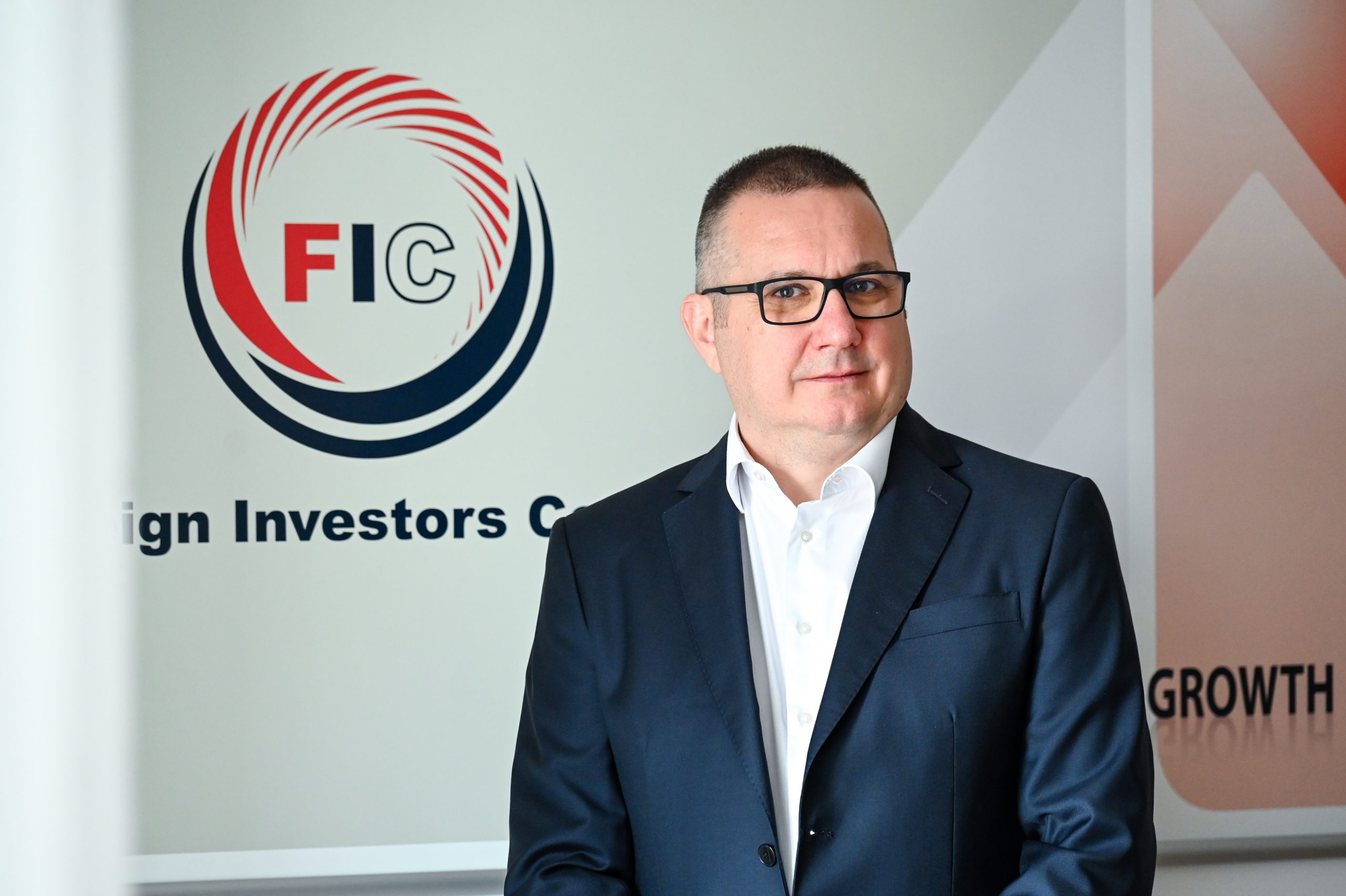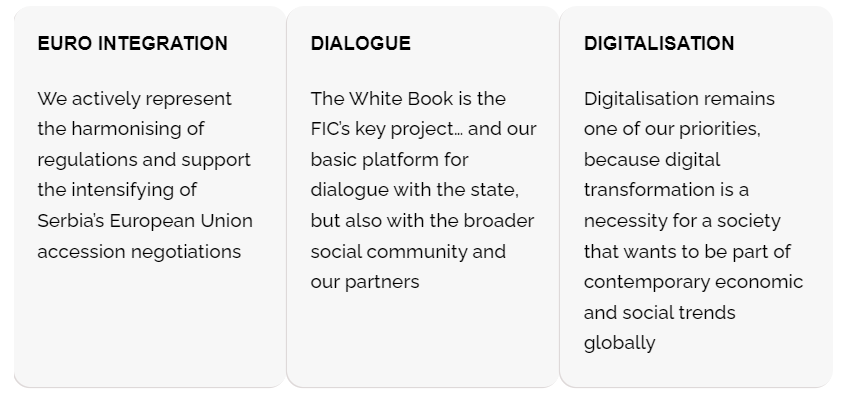Aleksandar Ljubić, Executive Director Of The Foreign Investors Council
Dedicated To EU Integration

We are conscious of the fact that it is only through partnership relations and an open dialogue that is it possible to reach the required level of understanding and awareness, which are essential to make the changes that will launch our society, and particularly our economy, towards the achieving of a common goal.
The Foreign Investors Council works, through numerous working groups/taskforces of the Government of Serbia, to successfully advocate changes to the Serbian economy aimed at establishing a market economy and equal conditions of doing business for all companies. We discussed the Council’s new initiatives with FIC Executive Director Aleksandar Ljubić.
Which areas are today in the focus of FIC members’ interests and what changes do you advocate for in this domain?
Thanks to the expertise of our members, as well as the fact that, throughout previous years, we’ve proven ourselves to be a reliable partner to the state when it comes to resolving key issues related to the improvement of the business and investment climate, the FIC has for many years had established institutional cooperation with the Government of the Republic of Serbia through the activities of the Working Group for the implementation of the recommendations of the White Book. It was precisely this mechanism that contributed to resolving and improving numerous issues and challenges that were confronting the business community in Serbia. The digital transformation of the Serbian economy certainly isn’t merely a matter of following trends, but rather also the needs of a society that wants to be part of contemporary economic and social trends globally. Digitalisation also remains one of our priorities in the period ahead, because there are many areas that can still be improved in terms of simplification, speed and transparency.

The FIC cooperates very intensively with the Republic Geodetic Authority. We strongly support the initiative to introduce the so-called ’cadastral alarm’, which sends alerts regarding any changes immediately, in real time, to real estate owners, or anyone who has a legal interest. We were naturally very heavily engaged in the drafting of new solutions regarding the Law on Foreigners and the Law on the Employment of Foreigners. Apart from the use of digital bills of exchange for registered companies, we also advocate for its full application for private individuals. ESG has become an imperative of global business today. In this sense, the FIC is addressing the important topic of regenerative agriculture, which is important for the entire supply chain system of local agricultural suppliers to our member companies, which – as major global players in the production of food from Serbia – supply not only Europe, but also further afield. This represents an important environmental issue, particularly bearing in mind that intensive agriculture is considered as being among the most aggressive human impacts on the natural world. Regenerative agriculture is leading the way in reshaping agricultural practices towards a more sustainable future.
You’ve organised a series of debates throughout this year that included the discussion of a large number of topics, from the development of financial services to new reporting rules for companies. How successful has this return to the live discussion format proven to be and what topics would you suggest for discussion in the period ahead?
The past year again showed us how important direct contact is for our members. The FIC Insight format, at which members present their experiences and expertise on current topics (hedging, labour law, ESG etc.) to other members and FIC partners, proved extremely successful. Apart from the aforementioned topics, the focus of the FIC in the coming period will undoubtedly be on various topics that encompass ESG and waste management, but also labour legislation, non-financial reporting, energy stability, tourism etc.
What strategic partnerships has the FIC established in order to promote shared goals?
The FIC has been striving for more than 20 years to create new partnerships through its activities, but also to work continuously with our partners from the public, private and non-governmental sectors to create a predictable, competitive and sustainable business environment. Also testifying to this is the fact that our members include numerous bilateral chambers of commerce. Moreover, this year we signed a joint initiative, together with 12 business associations, aimed at improving proposed solutions in the field of renewable energy sources.

We are part of the strengthening initiative to abolish VAT on food donations. We are conscious of the fact that it is only through partnership relations and an open dialogue that is it possible to reach the required level of understanding and awareness, which are essential to make the changes that will launch our society, and particularly our economy, towards the achieving of a common goal.
Serbia’s European integration process is unfolding through both harmonisation with the Aquis and through other initiatives aimed at forging connections in the field of infrastructure, the Green Deal and wider regional initiatives. How are these aspects of European integration reflected in your activities?
The FIC has been committed to European integration since the very start of its activities, and there is no dilemma over whether the path to EU membership is the one that Serbia should take, especially given how deeply integrated into the EU economy the Serbian economy already is.
We actively represent the harmonising of regulations and support the intensifying of accession negotiations. The strong European context of our activities is also visible in the partnership relations that we have with the EU Delegation and the EU Commission, testifying to which was our partnership at the recently held EU Opportunity Week, as well as with the European Investment Bank and the European Bank for Reconstruction and Development, which are also members of our administration.
The White Book has been a veritable trademark of the FIC for two decades. Who are its most important readers today?
The White Book is the FIC’s key project, one that’s unique in that it is written by the members themselves, on the basis of their vast expert knowledge, practical experience and dedication. Known for its unique, objective methodology for gauging progress achieved and the fulfilling of recommendations, it represents our basic platform for dialogue with the state, but also with the wider social community and our partners, such as professional and expert associations, educational and scientific institutions, the media and the diplomatic corps, with the aim of improving regulations or advancing the business and investment climate in Serbia, and as such it has become a key input for the economic aspect of the European Commission’s annual report on Serbia’s progress on the European integration process.

